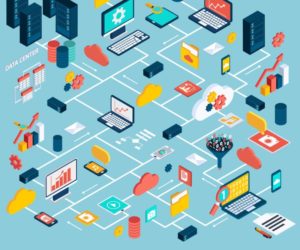“New workers need to be able to access digital assets easily in order to be efficient, but that means ‘security architectures must be rooted deep in the hardware of mobile devices,’ in the words of Böker.”
Samsung Electronics Germany B2B Director Martin Böker says the Internet of Things brings with it a need to rethink digital security.
 That’s the underlying message of two of the key ideas outlined in a new statement – that the “IoT Requires Openness and Security”, and that the “‘Open Economy’ is on its Way”. The former idea is that the proliferation of various IoT devices from a range of companies will require adherence to widely acknowledged standards and the use of open platforms – but that also means that digital infrastructure is more easily accessible to hackers, so extra attention must be paid to security.
That’s the underlying message of two of the key ideas outlined in a new statement – that the “IoT Requires Openness and Security”, and that the “‘Open Economy’ is on its Way”. The former idea is that the proliferation of various IoT devices from a range of companies will require adherence to widely acknowledged standards and the use of open platforms – but that also means that digital infrastructure is more easily accessible to hackers, so extra attention must be paid to security.
Meanwhile, the ‘open economy’ refers to the trend of increasing use of freelancers and contractors, rather than long-term employees, which in turn means less trust in workplace IT security. New workers need to be able to access digital assets easily in order to be efficient, but that means “security architectures must be rooted deep in the hardware of mobile devices,” in the words of Böker.
The fact that two of Böker’s “Five Hypotheses about the Internet of Things” concern security – the others are about business innovation, AI, and R&D – indicates the transformation that the IoT is wreaking across the digital landscape, and why digital identity is only going to become more important going forward.

Follow Us